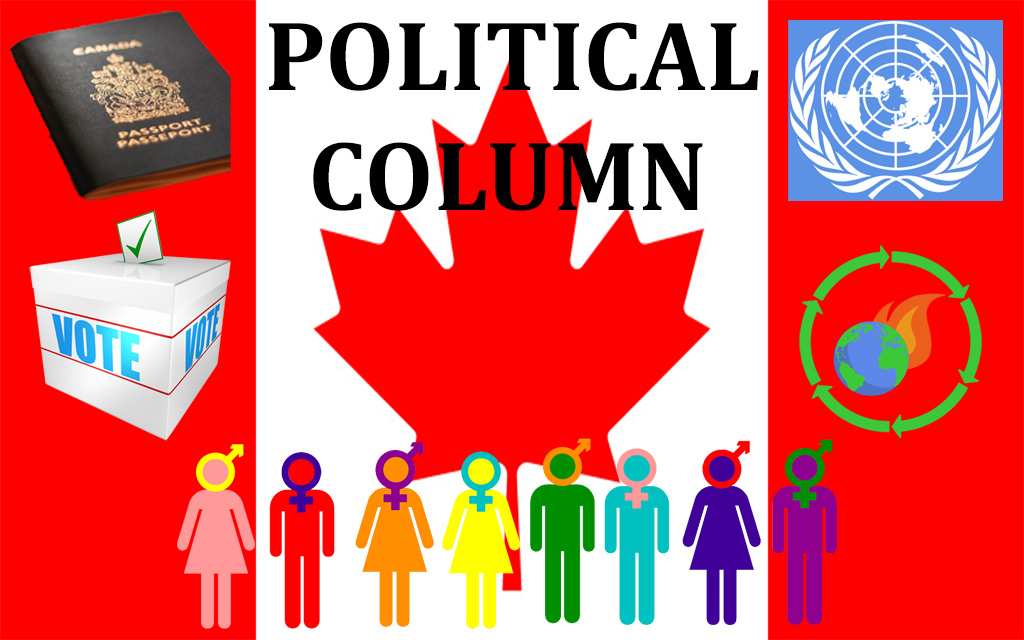Federal Minister of Public Safety Ralph Goodale tweeted an old video of Andrew Scheer on Aug. 22. The video showed the now Conservative Party of Canada leader speaking against marriage equality for the LGBTQ+ community in 2005. He was a member of Parliament in the House of Commons at the time.
Since he took over as Conservative Party leader in May of 2017, Scheer has failed to show up to any pride parade. Recently, Prime Minister Justin Trudeau, New Democratic Party of Canada leader Jagmeet Singh and Green Party of Canada leader Elizabeth May were at the forefront of such parades in Montreal and Vancouver.
“To be a leader for all Canadians, the Conservative Party leader should now end his lifelong boycott of pride events and explain whether he would still deny same-sex couples the right to marry, as he said in Parliament,” said Goodale in the caption of his tweet.
This tweet, along with recent criticism on Scheer’s stance on reproductive rights, comes after the Aug. 14 release of Ethics Commissioner Mario Dion’s report which found Trudeau guilty of breaching Section 9 of The Conflict of Interest Act. Goodale was not always as much of a supporter for LGBTQ+ rights, as he too was not much of a supporter of marriage equality in the past, along with many other politicians.
This video surfaced around the same time as Scheer’s September 2016 interview with CBC’s then Power and Politics host, Rosemary Barton, resurfaced on social media. Scheer affirmed he’s “pro-life” and to “look at [his] voting record.” He declared he would not revisit the issues of same-sex marriage and abortion, but would allow his members of Parliament to raise the issue if they so desired. Scheer made a similar statement, minus the pro-life bit, during a press conference on Aug. 29, 2019 in response to recent criticism of his stances on women’s rights and LGBTQ+ rights. However, Scheer did state “every Canadian, including LGBT Canadians, have the same equality rights under the law and that he will defend those rights both here and abroad.”
Let’s focus on parties that haven’t made the headlines for their position on women’s and LBGTQ+ rights.
In the Green Party platform, they state that “Green Party MPs will support public education to end prejudice and discrimination based on sexual orientation and gender identity.” They will also “improve protections for trans people and raise awareness of the policies for inclusion, including respecting pronoun choices.” The Greens vow to “ensure Canada advocates internationally for an end to state-sanctioned discrimination and violence against LGBT people” as well.
Regarding women’s rights, Green Party MPs promise to “oppose any possible government move to diminish the right of a woman to a safe, legal abortion.” They will also “expand programs in reproductive rights and education to avoid unwanted pregnancies and expand supports for low-income mothers.”
In the NDP’s party platform, their stance on women’s and LGBTQ+ rights includes a declaration that “everyone deserves safe, accessible abortion and reproductive health care services.” They go on to say that “New Democrats will enforce the Canada Health Act to make sure that the provinces make medical and surgical abortion available in all parts of the country.” The NDP promise to “also ensure that a full range of prescription contraceptive and reproductive health care options are easily accessible at no cost.”
The NDP also supports repealing the “ban on blood donation by men who have sex with anyone assigned male at birth,” banning conversion therapy, covering gender-conforming procedures under a public health plan, creating a plan to bring LGBTQ+ refugees to Canada and work towards ending employment discrimination faced by Canada’s LGBTQ+ community.
As for the People’s Party of Canada, led by Maxime Bernier, they propose repealing “any existing legislation or regulation curtailing free speech on the internet and prevent the reinstatement of section 13 of the Canadian Human Rights Act. Repeal C-16 and M-103.”
The Liberal Party of Canada, led by Justin Trudeau, believes in women’s access to abortion and wants to “make sure that sexual and reproductive health medications are covered under national pharmacare.” They also want to work with the Canadian Institutes of Health Research to integrate sex and gender-based analyses and “create a National Institute for Women’s Health Research, the first of its kind in Canada.” On LGBTQ+ rights, they want to ammend the Criminal Code of Canada and ban conversion therapy. They also want to give more funding to LGBTQ+ hotlines and organizations.
Having now considered the positions of all major political parties in this election on the issues of LGBTQ+ rights and women’s rights, I hope to have laid out a rather clear contrast of all five sides’ opinions, beliefs, and election promises. It is up to you to formulate your opinion on the evidence laid out before you, and how it will affect your vote on Oct. 21, 2019. Remember that no matter your political allegiance or opinion, it is imperative for our democracy that you vote in this upcoming federal election!

